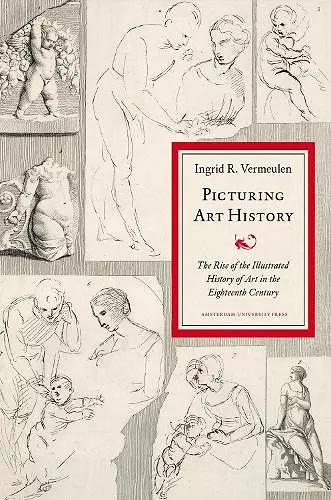Picturing Art History
The Rise of the Illustrated History of Art in the Eighteenth Century
Format:Paperback
Publisher:Amsterdam University Press
Published:31st Aug '10
Currently unavailable, and unfortunately no date known when it will be back

Books on art history are nearly always lavishly illustrated with quality colour reproductions of famous masterpieces. Yet this has not always been the case: it was only in the eighteenth century that art books came to be illustrated with beautiful images. Picturing Art History shows how the fundamentally new notion of the history of art as a visual history was responsible for this development. In the age before photography, paper collections of prints and drawings offered the only way to picture the artistic past. For the first time, illustrations became indispensable tools
as the new belief grew that art works rather than artists were the measure of the artistic past. Internationally renowned art scholars such as Bottari (1689-1775), Winckelmann (1717-1768) and d’Agincourt (1730-1814) collected reproductions in the form of prints and drawings, triggering discussions of the nature of illustrations as representations of art, classification of reproductions to demonstrate trends in art history, and the relationship between image and text in the art literature. With the help of illustrations, art history became an extraordinary visual experience, vital to the understanding of the history of art.
‘Vermeulen’s comments far exceed everything published so far (...).’ Christian Rümelin, editor of Print Quarterly|Picturing Art History by Ingrid R. Vermeulen ‘is a well-written work with an original and topical theme, and is based on thorough scholarly research.’ Debora J. Meijers, Associate Professor of Art History of the Modern Period, University of Amsterdam|Picturing Art History is a ‘fundamental chapter in the history of art. It demonstrates how important reproductions of works of art have been in the development of ideas on art history (...). For the first time an analysis is presented of the way art history texts were accompanied by images. (...) The three case studies highlight different relevant aspects of the subject as such. (...) More generally, the book contributes to the study of how mankind became familiar with artworks without having to see them firsthand.’ Ger Luijten, Director Fondation Custodia, Paris
ISBN: 9789089640314
Dimensions: unknown
Weight: 787g
360 pages